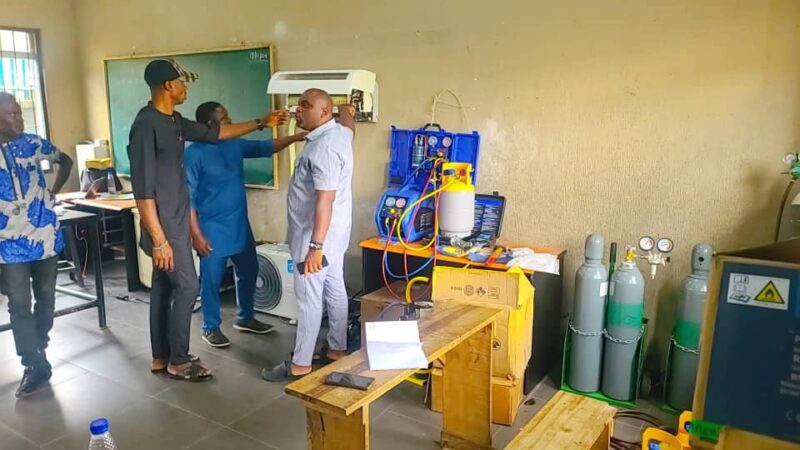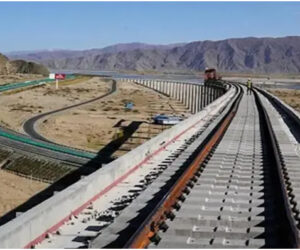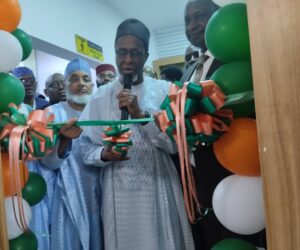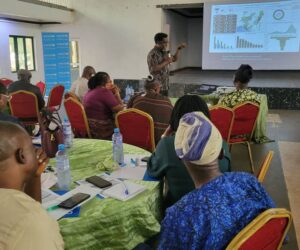2 total views today
By Aisha Gambo
The Federal Government on Friday concluded a four-day nationwide training and certification programme for Refrigeration and Air-Conditioning (RAC) Technicians.
The exercise with the theme: ‘Certification Training on Safe Handling of Natural Refrigerants for RAC Technicians,’ was being implemented in collaboration with the United Nations Development Programme (UNDP), and National Association of Refrigeration and Air-Conditioning Practitioners (NARAP).
The first batch of the training, held from Aug. 18 to 21, was simultaneously conducted in Kano, Lagos, Port Harcourt, and Awka, reaching technicians across the North-West, South-West, South-South, and South-East.
The second batch of the exercise would be conducted later in the year for the Norh-Central and North-East zones.
Previously, the same training was conducted for 40 RAC Technicians in Abuja at the Government Science and Technical College, Garki, Abuja, in July, this year.
Mr Idris Abdullahi, Director, National Ozone Office, Department of Pollution Control & Environmental Health, Federal Ministry of Environment, said this during the inauguration of the exercise at the Government Technical College, Kano.
Abdullahi said the programme would build the capacity of technicians, adding, “it is designed to ensure technicians are equipped to manage Ozone-friendly and Low-Global Warming Potential (GWP) refrigerants safely and responsibly.
“RAC Technicians Certification programs focus on safe handling practices, leak detection, and proper recovery techniques for refrigerants.
“This step-down training and certification of RAC technicians on the safe use of natural refrigerants is essential for ensuring that only trained and certified technicians are permitted to handle Hydrocarbon Refrigerants due to their flammability issues.”
Abdullahi highlighted that natural refrigerants such as CO₂ (R-744), ammonia (R-717), and hydrocarbons like propane (R-290) present environmentally-friendly alternatives to synthetic refrigerants.
They include: Hydrochlorofluorocarbons (HCFC-22), currently being phased out under the Hydrochlorofluorocarbons Phase out Management Plan Project, being implemented by the Federal Ministry of Environment, in collaboration with UNDP.
He said the refrigerants were increasingly adopted in critical applications like cold storage facilities and supermarkets due to their efficiency and environmental benefits.
Dr Leslie Adogame, Executive Director, Sustainable Research and Action for Environmental Development (SRADeV Nigeria), reaffirmed the organisation’s partnership with the National Ozone Office.
According to Adogame, it is meant to fast-track the implementation of the Montreal Protocol and the Kigali Amendment in Nigeria.
Represented by Jeremiah Ato, Policy and Technical Manager, SRADeV Nigeria, Adogame emphasised the role of technicians in the transition to sustainable cooling technologies.
He said, “technicians are at the heart of this transformation. Your expertise directly impacts the performance, safety, and environmental outcomes of cooling systems.”
Adogame said the training focused on customer relations, occupational safety, lifecycle refrigerant management, and handling of alternative RAC technologies.
He said it was critical to responsibly phasing down High-GWP Hydrofluorocarbons (HFCs). (NAN)(www.nannews.ng)
Edited by Bashir Rabe Mani










